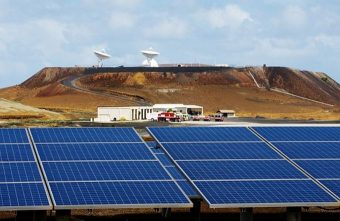
There will be increasing problems in the coming years with regard to China meeting its clean energy subsidy obligations, unless changes are made to the country’s fixed power price policies, a government official revealed recently.
Mississippi solar jobs ChinaIn total, the shortfall expected without a change of policy will climb to 200 billion yuan ($30.2 billion) by 2020 — up from 50 billion yuan in 2016.
The comments come from the director of China’s National Development and Reform Commission’s Energy Research Institute, and were made at an industry conference, so they are presumably worth taking note of.
That director, Dongming Ren, stated: “The shortfall will continue to widen if China keeps its current renewable policy of fixed power prices unchanged.”
As you may recall, China is currently working to raise the share of its energy mix held by renewables to 15% by 2020 — hence the aggressive subsidies.
So why does this news matter? As noted by the deputy director at State Power Investment Corp’s Huanghe Hydropower Development Corp, Pang XiuLan, while also speaking at the conference: “Two years of delays in getting government subsidies will cut a solar project return by 5-6 percentage points.”
Reuters provides more: “To ease the government’s financial burden on renewable projects and keep the rate of waste power under control, China has cut subsidies for new large-scale solar and onshore wind power projects and set capacity limits in regions with high waste rates.
“It also introduced green electricity certificate system in February and aimed to enforce compulsory quota system on coal-fired power plants in 2018. The country also plans to launch a nationwide carbon trade emissions trading market this year, although Ren said earlier on Wednesday that plan is delayed into 2018.”
“’China needs to expand the source of renewable subsidies, otherwise it would be very difficult for clean energy to compete with coal, especially before environmental costs are showed on coal-fired power prices,’ stated Ren.
Interesting news. Not too surprising, but interesting. We’ll keep you posted as the situation develops.
Source: cleantechnica.com
